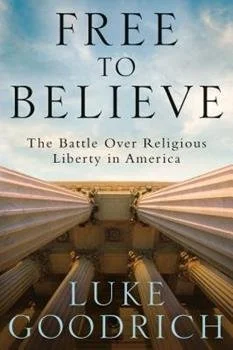Commentary
Week: October 13th - October 17th, 2025
10/13/25 - Encourage Character
You can cultivate good character in your children through encouragement. When someone is discouraged, we say he has lost heart. To encourage someone is to boost something that is in their heart. So, here’s what to do.
First, think of a good behavior your child has recently exhibited. Then, think of a character quality the behavior reflected. Next, tell your child how pleased you were to see the behavior and the character quality it exhibited. Go beyond praising the behavior and look at the heart-issue it expressed.
Has your child recently done something that reflected generosity, thoughtfulness, or hard work? Make a note of it and tell your child that you noticed not only the behavior, but also the character it revealed.
You can be a gateway to better education for your children. For more resources visit our HOME PAGE.
10/14/25 - Free to Believe
Luke Goodrich has written an excellent book entitled Free to Believe: The Battle over Religious Liberty in America. And I recommend you read it.
Goodrich is an attorney with the Becket Fund for Religious Liberty. What I particularly like about his book is that he not only explains the very real threat to religious freedom in America, he also gives strategies that Christians can use to address it.
The next generation of voters are sitting in today’s classrooms. They need to understand the value and benefit of religious freedom so they support it and protect it. Do help make that happen, we’ve launched the National Free to Speak Campaign.
I urge you to join the Cause. You can be a gateway to better education to your children and students. For resources visit our HOME page.
10/15/25 - Help Me Understand
If you are concerned about something in your child’s classroom, there are three steps you can take to raise your concern and see a change.
When you have a concern, meet with the teacher and start the conversation by using the phrase “Help me understand...” Don’t assume you know the teachers’ intent. Your question should be a sincere desire to understand the point of the assignment or activity.
Next, affirm, in general, what the teacher is trying to do. Finding “common ground” is an important part of the discussion.
Finally, transition to your concern by saying, “But have you considered...?” Don’t assume the teacher will oppose you. In fact, it is better to assume the teacher will agree with you once you explain your concern.
For more details on this “Help me understand” approach to a classroom concern, click HERE.
10/16/2025 - Talking to a Principal
School principals hear a lot of complaints from parents. If you need to talk to your child’s principal about a concern, there is an approach that just may break through all the chatter.
Approach the principal as a friend and supporter of the school. Begin the conversation by saying, “I thought I should alert you to a potentially embarrassing problem.” You’re not there to cause a problem, but to help the school avoid a problem.
Explain what you discovered when you talked to the teacher, which you’ll need to do first. And then ask the principal’s advice for how to resolve the problem.
You may also want to bring a friend or your spouse along. You will feel less intimidated, and if you get flustered, your partner can help you express your concern.
When you have a concern about your children’s school, you can be a gateway to better education. For help, click HERE.
10/17/25 - School Accountability
The U.S. Department of Education has published updated guidance on religious freedom in public schools. One of the things it added was accountability for schools.
In 2002, Congress amended the Elementary and Secondary Education Act to require that public schools certify they have no policy against students praying at school. That is a rather low bar. A school might not have an official policy against prayer, but in practice they might repress it. The Department of Education has now made clear that states must have a process for students, parents and teachers to report violations of their right to participate in protected religious expression. It requires each state to notify the Department of any complaint against schools alleging violations even if the state thinks they are without merit.
For details on the new guidance from the United States Department of Education, visit THIS PAGE.





